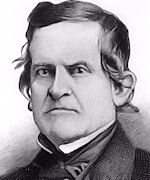December 10th.—We have been up to the Mulberry Plantation with Colonel Colcock and Judge Magrath, who were sent to Columbia by their fellow-citizens in the low country, to hasten the slow movement of the wisdom assembled in the State Capital. Their message was, they said: “Go ahead, dissolve the Union, and be done with it, or it will be worse for you. The fire in the rear is hottest.” And yet people talk of the politicians leading! Everywhere that I have been people have been complaining bitterly of slow and lukewarm public leaders.
Judge Magrath is a local celebrity, who has been stretched across the street in effigy, showing him tearing off his robes of office. The painting is in vivid colors, the canvas huge, and the rope hardly discernible. He is depicted with a countenance flaming with contending emotions—rage, disgust, and disdain. We agreed that the time had now come. We had talked so much heretofore. Let the fire-eaters have it out. Massachusetts and South Carolina are always coming up before the footlights.
As a woman, of course, it is easy for me to be brave under the skins of other people; so I said: “Fight it out. Bluffton¹ has brought on a fever that only bloodletting will cure.” My companions breathed fire and fury, but I dare say they were amusing themselves with my dismay, for, talk as I would, that I could not hide.
At Kingsville we encountered James Chesnut, fresh from Columbia, where he had resigned his seat in the United States Senate the day before. Said some one spitefully, ”Mrs. Chesnut does not look at all resigned.” For once in her life, Mrs. Chesnut held her tongue: she was dumb. In the high-flown style which of late seems to have gotten into the very air, she was offering up her life to the cause.
We have had a brief pause. The men who are all, like Pickens,² “insensible to fear,” are very sensible in case of small-pox. There being now an epidemic of small-pox in Columbia, they have adjourned to Charleston. In Camden we were busy and frantic with excitement, drilling, marching, arming, and wearing high blue cockades. Red sashes, guns, and swords were ordinary fireside accompaniments. So wild were we, I saw at a grand parade of the home-guard a woman, the wife of a man who says he is a secessionist per se, driving about to see the drilling of this new company, although her father was buried the day before.
Edward J. Pringle writes me from San Francisco on November 30th: “I see that Mr. Chesnut has resigned and that South Carolina is hastening into a Convention, perhaps to secession. Mr. Chesnut is probably to be President of the Convention. I see all of the leaders in the State are in favor of secession. But I confess I hope the black Republicans will take the alarm and submit some treaty of peace that will enable us now and forever to settle the question, and save our generation from the prostration of business and the decay of prosperity that must come both to the North and South from a disruption of the Union. However, I won’t speculate. Before this reaches you, South Carolina may be off on her own hook—a separate republic.”
¹A reference to what was known as “the Bluffton movement” of 1844, in South Carolina. It aimed at secession, but was voted down.
²Francis W. Pickens, Governor of South Carolina, 1860-62. He had been elected to Congress in 1834 as a Nullifier, but had voted against the “Bluffton movement.” From 1858 to 1860, he was Minister to Russia. He was a wealthy planter and had fame as an orator.










